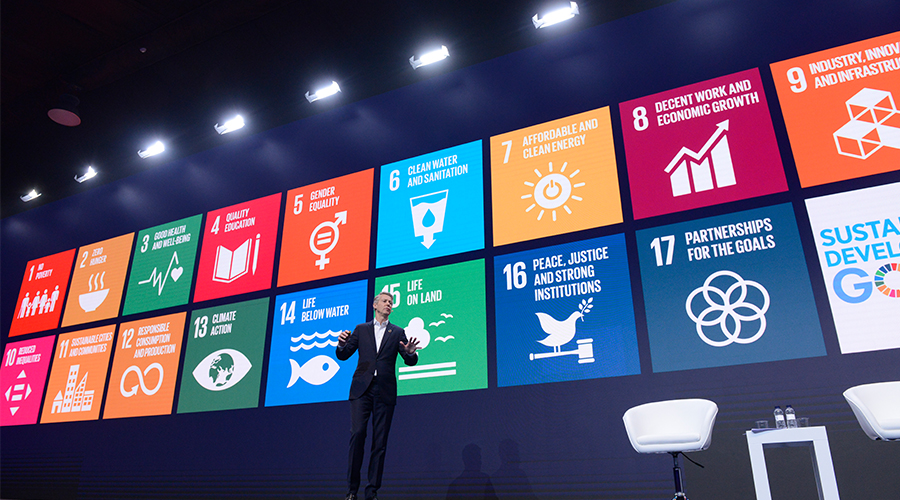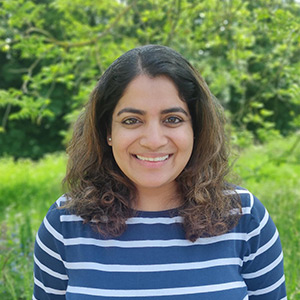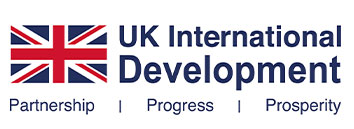Artificial Intelligence (AI) innovations have the potential to contribute to economic growth in Africa. It is estimated that AI could be doubling Africa’s Gross Domestic Growth (GDP) growth rate by 2035. In Sub-Saharan Africa, the three tech and innovation hubs of Kenya, Nigeria, and South Africa have shown progress in the development and adoption of AI.
With a growing tech start-up ecosystem that is increasingly shifting to AI, these countries are developing AI strategies and implementing data protection laws and ethical guidelines, which serve as building blocks for the development of an AI ecosystem. For instance, a taskforce on blockchain and AI was formed by the Kenyan government to provide recommendations to harness AI effectively. In Nigeria the formation of a national AI strategy is already underway, while in South Africa the Presidential Commission on the Fourth Industrial Revolution was formed to create relevant policies around AI and other technologies.
In addition to enhancing economic growth, AI is playing an increasingly important role in sustainable development in Africa. To explore the opportunity of AI-enabled solutions in digital development, the Central Insights Unit at the GSMA Mobile for Development has undertaken a research project with the UK Foreign, Commonwealth & Development Office (FCDO) to identify existing and emerging use cases of AI for development, with a focus on Kenya, Nigeria, and South Africa. The project focuses on solutions which address some of the most pressing development challenges faced in these countries, such as the intensification of climate shocks, inefficient food systems, high levels of malnutrition, inadequate energy access, and poor access to healthcare services, impacting most vulnerable segments of the population.
AI’s potential to contribute to Sustainable Development Goals
There is evidence that shows how AI can contribute towards achieving the 2030 Sustainable Development Goals (SDGs). AI-led technology solutions for development are being built by different actors across Africa, including private sector actors such as start-ups and Big Tech companies, governments, research and academic institutions, and NGOs and civil society organisations. In addition, bilateral and multilateral international development organisations, and donors are also building or funding AI-led solutions to address developmental issues through grants, pilot programs, and technical assistance. However, despite these initiatives, there are few solutions that are commercially available, especially to populations at the last mile.

SDG 2: Zero hunger
In the agriculture sector, under SDG 2: Zero hunger, AI applications are being used to improve efficiencies in supply chains, to monitor, detect and combat pests and disease, and to improve food security. Start-ups such as IAPrecision in Nigeria, Ujuzi Kilimo and Apollo Agriculture in Kenya, and Aerobotics in South Africa have developed precision agriculture solutions to provide data-driven insights to help farmers optimize their outputs. Other organisations working on agriculture solutions include Microsoft, which through its ‘AI for good’ lab in Kenya has launched several projects to bolster food security and arrest malnutrition in collaboration with ecosystem stakeholders, and the World Food Programme, which is running several AI initiatives to map hunger and food insecurity in Africa.
SDG 3: Good health and well-being
Under SDG 3 on good health and well-being, AI is being used to monitor maternal health and provide AI-driven medical imaging services, among other applications. Access to primary healthcare and high-quality health diagnostics is a key challenge, and start-ups like Envisionit Deep AI in South Africa and Access Afya in Kenya are working on these solutions. Envisionit Deep AI uses AI for diagnostics imaging, while Access Afya has launched an AI-powered virtual clinic application called mDaktari to respond to patient queries and provide accurate diagnoses and treatments. Another initiative in the AI for health space is Momconnect, a South African National Department of Health Initiative, which has an AI-powered symptom assessment technology to provide maternal and child healthcare over calls and messages.
SDG 7: Affordable and clean energy
AI applications are also supporting the transition to clean energy (SDG 7) while improving the efficiency of existing power supplies. There is a significant opportunity for off-grid and mini-grid solutions using renewable energy, given the lack of regular access to power especially in rural areas. Arnergy in Nigeria and Nithio in Kenya and Nigeria are examples in this area. Arnergy uses AI to manage solar energy storage and distribution to optimise its consumption, while Nithio uses AI to understand household credit risk and estimate their demand for energy solutions.

SDG 13: Climate action
AI is being used to help mitigate the impacts of climate change and build resilience in local communities, by providing accurate weather advisory, early warning systems, and local level environment data. An example of such a solution is deployed by Amini AI in Kenya, which uses AI and satellite imaging to collect and process environmental data to help grassroot communities and companies make well-informed decisions about their land resource use, agricultural yield, assessment of climate risk for insurance, and supply chain management. Similarly, IBM research has partnered with African Risk Capacity (ARC) to leverage environmental and weather data to predict extreme weather events in Africa. The solution includes an AI powered-flood risk prediction model and an AI-weather generator.
Building an enabling ecosystem to support AI for development
Some of the challenges in fostering AI-enabled solutions include a lack of open data ecosystems and local level, quality data to feed into AI models for truly local solutions, inadequate connectivity and infrastructure, low levels of digital skills and literacy, and a lack of integrated regulations and policies to govern the ethical and sustainable use of AI. Another important challenge, especially in terms of attracting funding for AI-led solutions, is a lack of viable and tested business models. Showcasing these models can make an important business case to attract investments in AI for development.
Building and scaling viable business models requires collaboration between the private sector, governments, funding agencies, incubators and accelerators, and civil society organisations that are working in local contexts and with local communities. For instance, the UK FCDO recently announced a partnership with funders such as International Development Research Centre (IDRC), USAID, and the Bill and Melinda Gates Foundation for the promotion of inclusive and safe AI in Africa. The private sector and Big Tech companies, in particular, can play a role in creating an enabling environment for start-ups and innovators in AI. An example comes from India, where the multinational conglomerate Reliance has partnered with Nvidia, a US-based chip firm to jointly develop AI infrastructure in India including a large language model for Indian languages.
Our action-oriented research
Previous research has focused on assessing AI ecosystems and on outlining the potential of AI-based solutions for socio-economic and environmental impact. However, there is a knowledge gap on how specific use cases of technology solutions that are built on AI models can be supported and scaled. To address this gap, the Central insights Unit of GSMA Mobile for Development is currently working on research to identify emerging AI-enabled solutions and use cases that can be scaled to address development challenges related to agriculture, food security, energy, climate action and healthcare.
If you are interested in or working on a similar area, please reach out to us at [email protected] to find out more about the project or to share your insights with us.
THE CENTRAL INSIGHTS UNIT IS CURRENTLY FUNDED BY THE UK FOREIGN, COMMONWEALTH & DEVELOPMENT OFFICE (FCDO), AND SUPPORTED BY THE GSMA AND ITS MEMBERS.



